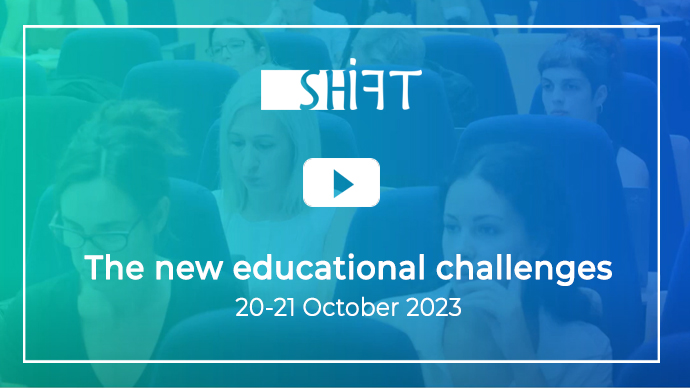Schools Harnessing Inclusive
Facilitator Technology
competences by teachers and educational
support staff to foster inclusion in the classroom

About the project
SHIFT project is an innovative, inclusive project which addresses both professional and social priorities: the strengthening of the profiles of teaching professionals and educational support staff and the tackling of early school leaving and disadvantage through fostering inclusion. Different inclusion needs will be taken into account such as students with special educational needs associated with physical, intellectual or mental disabilities; students of foreign origin with educational needs derived from the late incorporation to the educational system; students with educational needs derived from particularly disadvantaged socio-economic and sociocultural situations; students with learning or communication disorders and students at risk of early school dropout.
Within the context of inclusive education, where the diversity of needs and abilities is not seen as a problem but rather as an added value, the new professional challenges faced by teaching staff and educational support staff and the relevance of the use of ICT in the classroom become a priority. Towards this direction, SHIFT project has three main objectives:
-To evaluate the transfer of the training on digital competences by teachers and educational support staff into the inclusive classroom.
-To evaluate the multidisciplinary competencies, collaboration among all the agents involved in the classroom: teaching staff and educational support staff (teachers, special education teachers, physiotherapists, speech therapists, educational psychologists etc).
-To improve the training received by teachers and educational support staff on digital competences in order to foster inclusion and tackle disadvantage and early school leaving.
SHIFT is expected to generate results that enable the evaluation of the transfer of digital competences in the setting of the inclusive classroom and provide guidance upon the learning paths to be followed for the acquisition of digital competencies that foster inclusion. This will be achieved through very efficiently organized activities such as identification of inclusion needs, development of different evaluating methods and indicators so as to measure the transference of the training received in digital competences , identification of the digital competencies that have a positive impact on inclusion, establishing a relationship between training received and transfer, measuring and evaluating the Competency Gap between the Requested Competences and Owned/Transferred competencies and evaluating multidisciplinary competencies in the context of the inclusive classroom. The involvement of schools for implementation pilot is one of the most important activities of our project and will provide the opportunity to test the outputs of the project in real settings and gain more insight on the needs of educational staff and students with inclusion needs. The multiplier events related to the intellectual outputs, our dissemination activities and our sustainability plan will guarantee the upscaling and continuation of the outcomes far beyond the project´s life span and EU funding.
Partners
Institut de Formació Continua IL3-UB (project coordinator)
IL3-UB is the life long learning Institute of the University of Barcelona and it’s one of the most experienced and pioneer educational centres in on-line training. For 25 years, it has sheltered a network of more than 1,500 associated experts, it has collaborated with more than 2,000 companies from the main economic sectors and has been an educational reference for more than 60,000 students worldwide. It offers a variety of masters, postgraduate courses, and training programs in Education, Health and Pharmacy, Engineering, Technology and Environment, Economics and Business and Culture and Communication.
The International Projects Unit of IL3-UB has been involved in the past few years in different European Projects offering its expertise in instructional design and evaluation, designing learning paths for learners, instructional design and evaluation, blended training offer, quality and management.
IL3-UB as the coordinator of the SHIFT project will be in charge of the timely. Efficient and transparent implementation of the project and will be participate in the design and production of the two Intellectual Outputs.
STAFF PARTICIPATING IN THE PROJECT:
Darío Gómez (Coordinator): lgomez@il3.ub.edu
Oriol de Bolos: odbolos@il3.ub.edu
Laura Pardo: lpardo@il3.ub.edu
Gerard McLoughlin: gmcloughlin@ub.edu


Åbo Academy University
An internationally acknowledged research university with responsibility for providing higher education in Swedish in Finland. ÅA has a total of 1100 employees, of which 700 are working in education and research, 5500 undergraduate students and 950 postgraduate students.
A cross-disciplinary digital experience lab of 8 people is based at ÅA university involved in both research, development and commercial projects. It focuses on the meeting between humans and digital technology, including user experience research, usability, user-centered design and new technology. Their methods include eye-tracking, psychophysiological measurement, EEG, questionnaires and interviews.
https://www.abo.fi/en/experience-lab/our-methods/
Examples of new technology we are currently studying in both educational and health care settings include: the humanoid robot Pepper, virtual reality and augmented reality.
Åbo Academy University will lead WP1 for the identification of ICT competences of teachers and support staff, inclusion needs and multidisciplinary competences in the inclusive classroom. They will participate actively in the pilot implementation and data gathering from 6 schools in Finland.
STAFF PARTICIPATING IN THE PROJECT:
Anette Bengs: anette.bengs@abo.fi
Emmanuel Acquah: emmanuel.acquah@abo.fi


The Department of Education. Generalitat of Catalonia
The Department is responsible for the design of the educational policy, in the field of non-university education and vocational training and qualification (FP). In the field of non-university education, the Generalitat has the exclusive, shared competences and of execution established in article 131 of the Statute of Autonomy of Catalonia, which have been developed by the Law 12/2009, of July 10, of education.
The functions of the Department are the following:
- a) The educational policy in the field of non-university education.
- b) The action in the matter of curricular organization and innovation of the educational system.
- c) Evaluation of school performance and the establishment of corrective measures.
- d) The management and evaluation of the public schools of the educational system of Catalonia.
- e) The supervision and relation with the private schools of the educational system of Catalonia.
- f) Planning the educational offer of education centres.
- g) The management of teaching staff and staff at the service of public schools.
The Department of Education will have a leading role in the implementation of the pilot in 6 schools in Catalonia where data will be collected regarding the transfer of ICT competences by teachers and support staff in the inclusive classroom.
STAFF PARTICIPATING IN THE PROJECT:
Maica Gil: mcarmen.gil@gencat.cat
Eva Revilla: erevilla@gencat.cat
Elisabet Maseras: elisabet.maseras@gencat.cat
Amparo Sota Antoñanzas: masota@gencat.cat

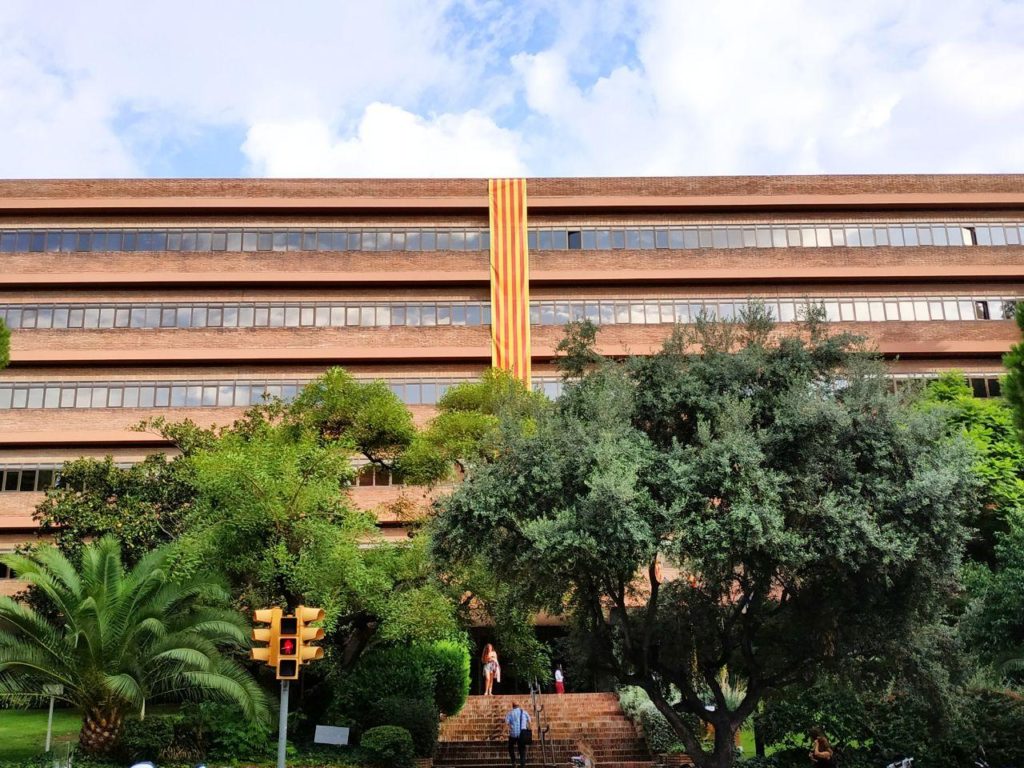
University of Nicosia (UNIC)
Established as a university on October 4, 2007. It started back in 1980 as a private college by the name Intercollege, offering bachelor and master degrees (since 1996, university status accredited degrees). The University has 6 Schools (Business, Education, Humanities and Social Sciences, Law, Medical, Sciences and Engineering), 20 Departments and a Centre of Modern Languages. It’s educational offer includes 40 bachelor’s degrees, 37 master degrees,20 doctorate degrees and 34 distance learning programmes.
With very high standards on quality the University of Nicosia is aligned with The Quality Assurance and Accreditation of Higher Education and the Establishment and Operation of an Agency on Related Matters Law of 2015 , The Private Universities Law 109(1) of 2005, the Cyprus NARIC Law as well as with European Guidelines and Standards for Quality Assurance – 2015.
University of Nicosia will lead work package 2 which will consist in the establishing indicators and tools for evaluating teachers' competency in creating an effective and inclusive learning environment enhanced with technology. They will also lead and monitor the pilot implementation in the schools of Nicosia.
STAFF PARTICIPATING IN THE PROJECT:
Andri Vrioni: vrioni.a@unic.ac.cy
Melpo Iacovidou: iacovidou.m@unic.ac.cy

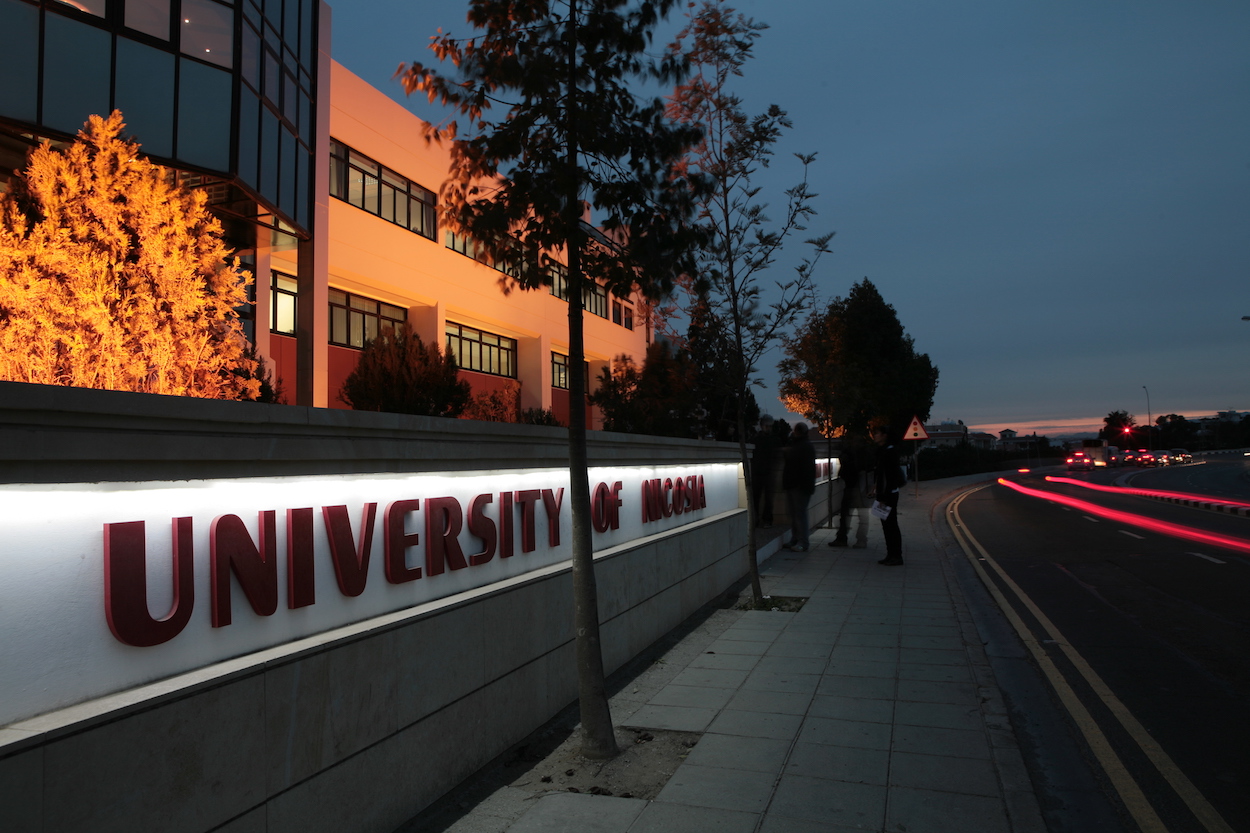
University of Barcelona
Since it was founded in the year 1450, the University of Barcelona has been a leading centre of education, science, and critical thought. The quality of its teaching and research, which have won recognition both inside and outside Spain, complements the UB’s commitment to serving the interests of local society and the country as a whole and combines with a demonstrably dynamic, constructive and humanist character that permeates the daily activities of the institution. Demand from prospective students consistently exceeds the offer of places, with more than 64.000 students enrolling each year at one of the UB’s six campuses. In the academic year 2017-2018, students were distributed across 73 bachelor’s degrees, 153 university master’s degrees, 48doctoral programmes, over 700 postgraduate courses, and 597 on-site and distance lifelong learning courses. A broad selection of courses in offered, covering the many disciplines that make up the principal branches of knowledge: humanities, health sciences, social sciences, experimental sciences, and engineering.
The University of Barcelona will lead the 4th work package of the project which consists in analyzing the results of the evaluation of transference during the pilot phase. This results will be used for the second Intellectual Output "2.Learning Paths for teachers and educational staff for acquiring digital competencies that foster inclusion".
STAFF PARTICIPATING IN THE PROJECT:
José Luís Medina: jlmedina@ub.edu
Ignasi Puigdellivol: ipuigdellivol@ub.edu
Trinidad Mentado: trini.mentado@ub.edu
Gabriel Hervás Nicolás: gabriel@he.u-tokyo.ac.jp
Isaac Calduch Pérez: icalduch@ub.edu
Andrea Jardí: ajardi@ub.edu
Beatríz Jarauta Borrasca: bjarauta@ub.edu

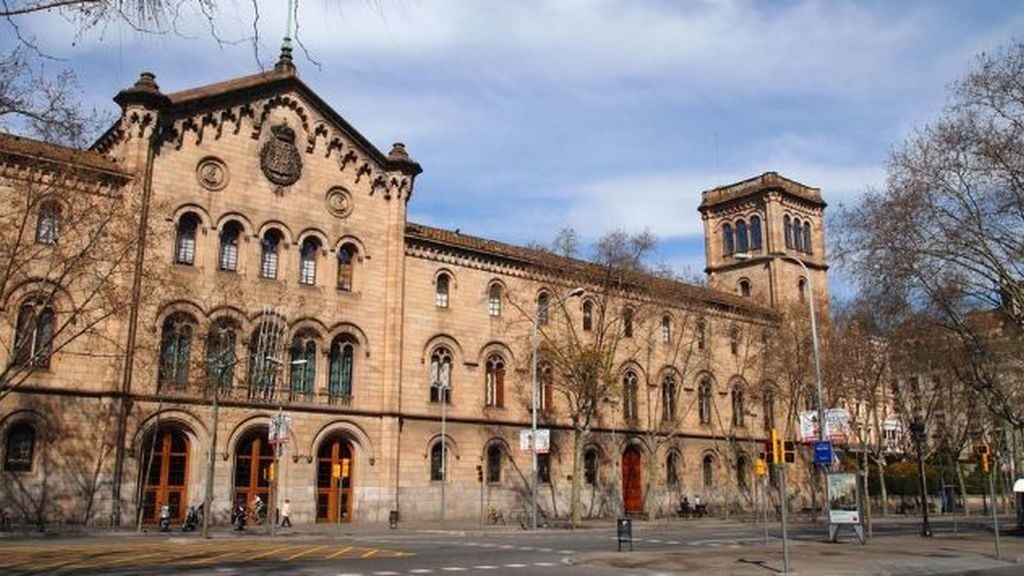
The map of the project
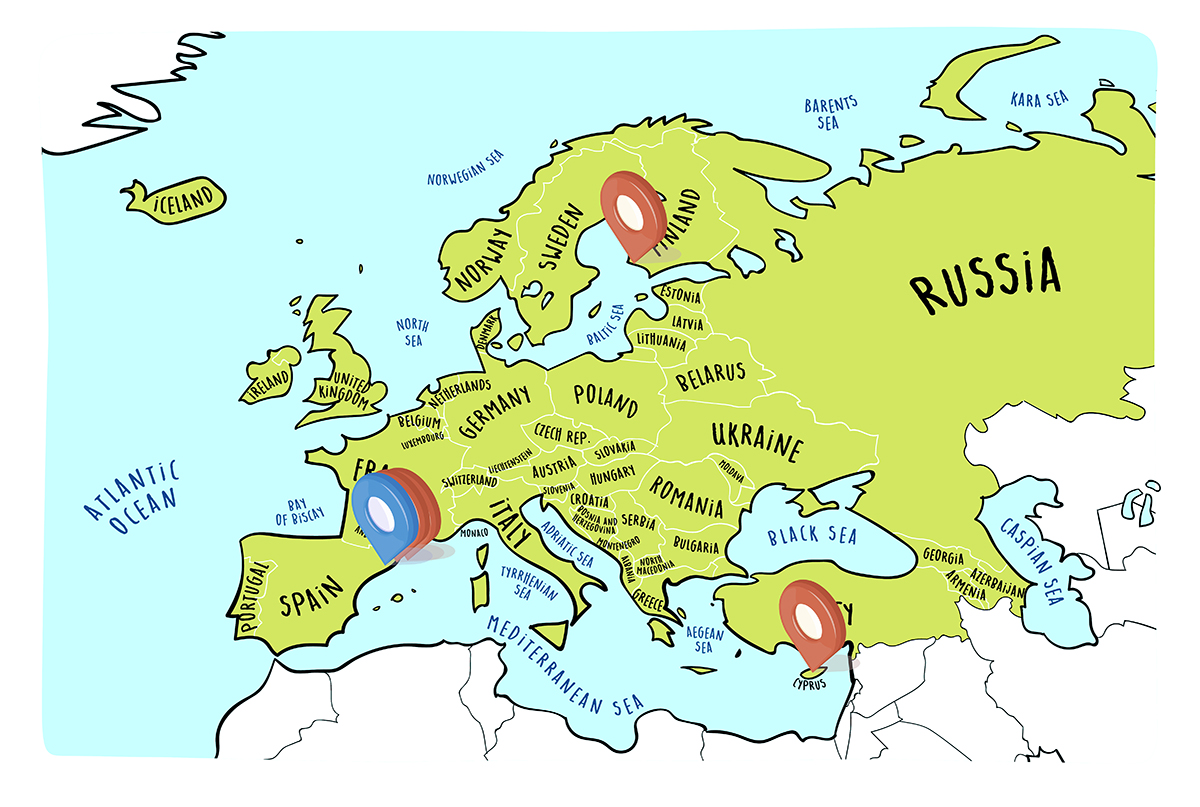
Activities
Recruitment of participating schools
Finland
Borgaregatans skola
Haga skola
Korsholms högstadium
Övningsskolan
Smedsby-Böle skola
Catalonia
Escola Els Quatre Vents
Escola Joan Salvat Papasseit
Escola Santiago Ramon y Cajal
IES Andreu Nin
Institut-Escola Baldomer Solà
Cyprus
2o Primary School, LATSIA
3o Primary School, LATSIA
4o Primary School, LATSIA
VIRTUAL MEETING WITH THE SCHOOLS PARTICIPATING IN THE PILOT
3 February 2021
Organized by the Department of Education of Catalonia.
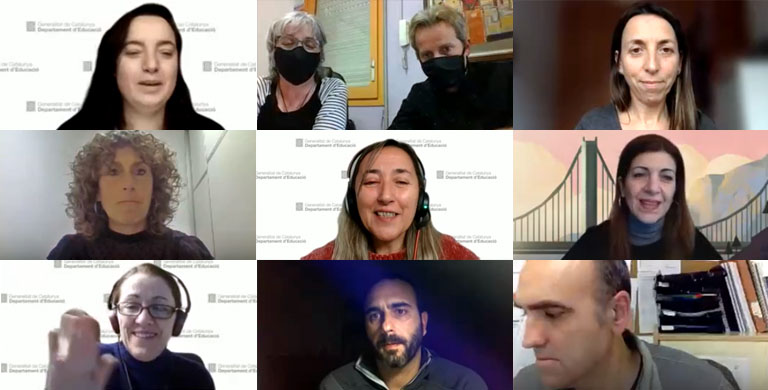
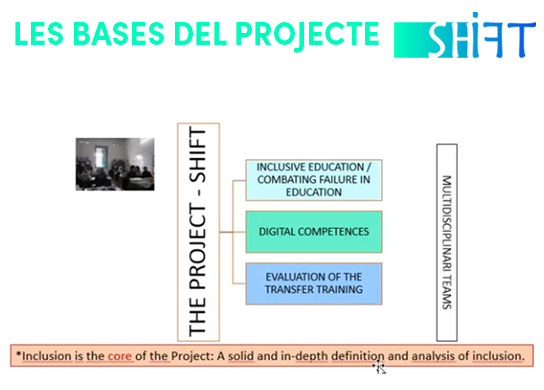
2ND TRANSNATIONAL MEETING
16 October 2020
Universiry of Nicosia
Status and Quality of the Project’s Development
WP2: Indicators and tools for evaluation.
| FRIDAY, 16 DAY, OCTOBER 2020 | |
| 10.00 | Welcome - Opening words Professor Philippos Pouyioutas. Rector of UNIC |
| 10.15 | Status and quality of the project’s development |
| 11.00 | WP2: Presentation of the methodology and work plan by WP leader, UNIC From WP1 to WP2: Transforming results to evaluation tools Methodology of Work: Working with Delphi Procedure |
| 12.00 | Coffee break |
| 12.15 | IO1: Inclusive Evaluation Manual -Structure -Content -Requirements Marsia Ellina. Project’s Coordinator (IL3-UB) |
| 12.45 | WP2: Tasks and roles of each partner -Tasks |
| 13.15 | Discussion All partners |
| 14.00 | End of meeting |
KA2: Cooperation for Innovation and Exchange of good practices
KA201: Strategic Partnerships for School Education
Project no.: 2019-1-ES01-KA201-064444
Project Duration: 36 months
Project Title: Evaluation of the transfer of training on digital competences by teachers and educational support staff to foster
Project Name: SHIFT
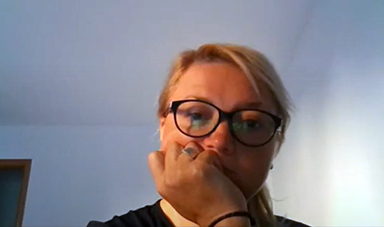
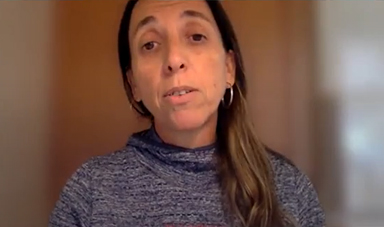
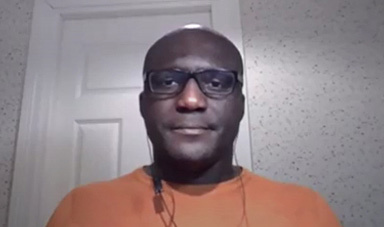
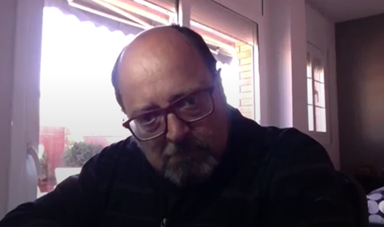
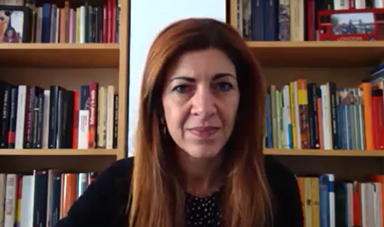
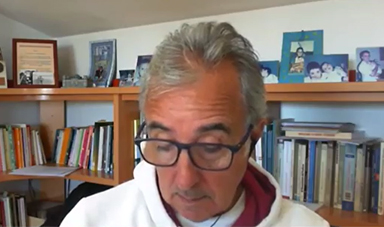
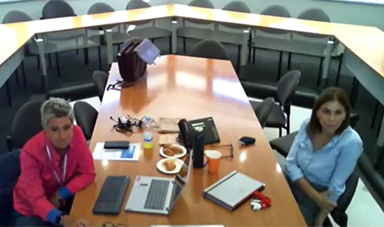
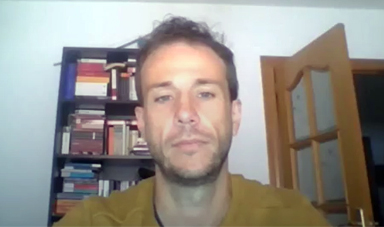
PRESENTATION AV RESULTAT FRÅN FÖRSTUDIE INOM PROJEKTET SHIFT
14 September 2020
Åbo Academy University. Turku. Finland
Plats: virtuellt via länken https://aboakademi.zoom.us/j/62944014537
| PROGRAM | |
| 15.00 | Inledning |
| 15.10 | Presentation av resultat från vårens förstudie i skolorna |
| 10.35 | Diskussion |
| 15.50 | Avslutning |
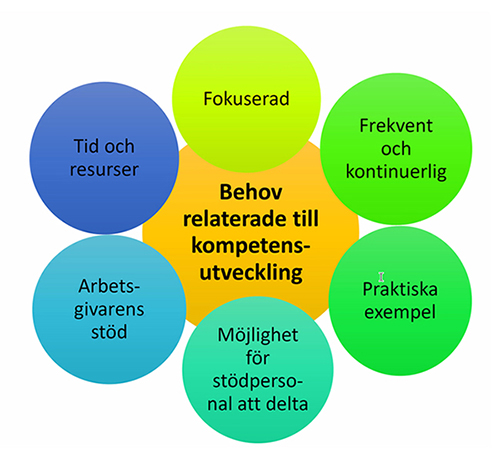
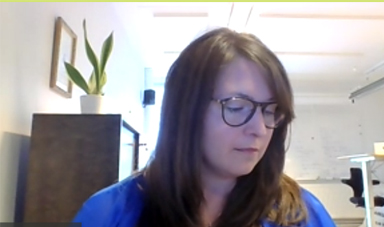

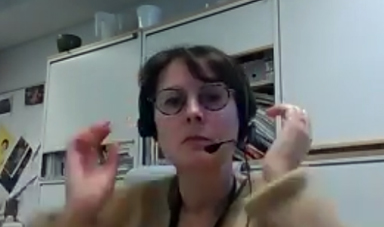
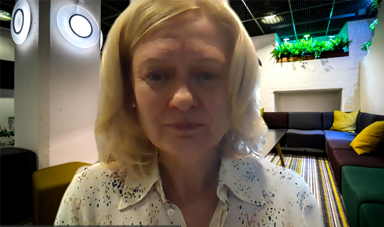
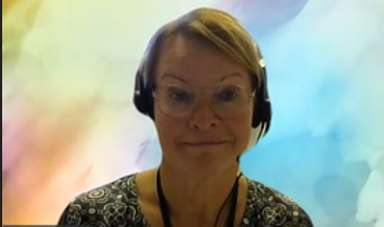
PRESENTATION AV RESULTAT FRÅN FÖRSTUDIE INOM PROJEKTET SHIFT
14 September 2020
Åbo Academy University. Turku. Finland
Plats: virtuellt via länken https://aboakademi.zoom.us/j/62944014537
| PROGRAM | |
| 15.00 | Inledning |
| 15.10 | Presentation av resultat från vårens förstudie i skolorna |
| 10.35 | Diskussion |
| 15.50 | Avslutning |
MEETING WITH STAKEHOLDERS IN FINLAND
27 January 2020
Åbo Academy University. Turku. Finland
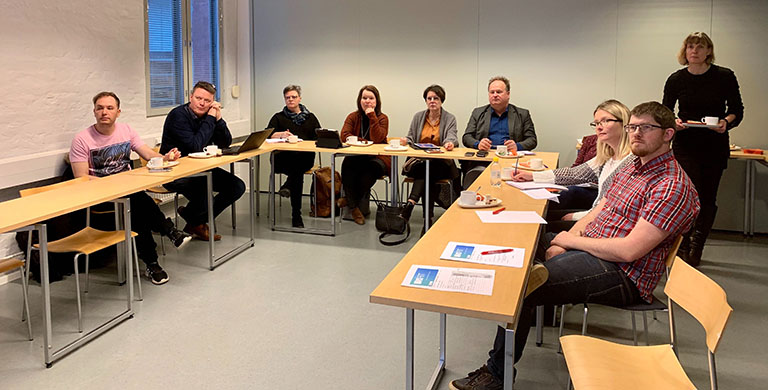
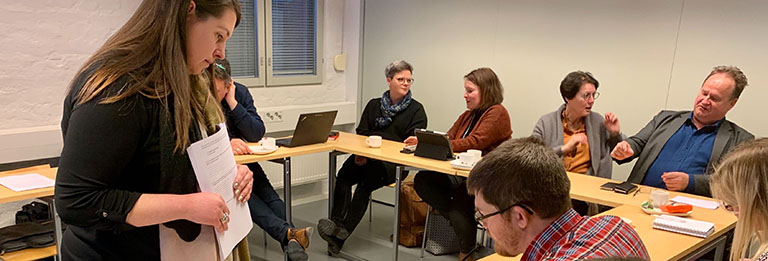
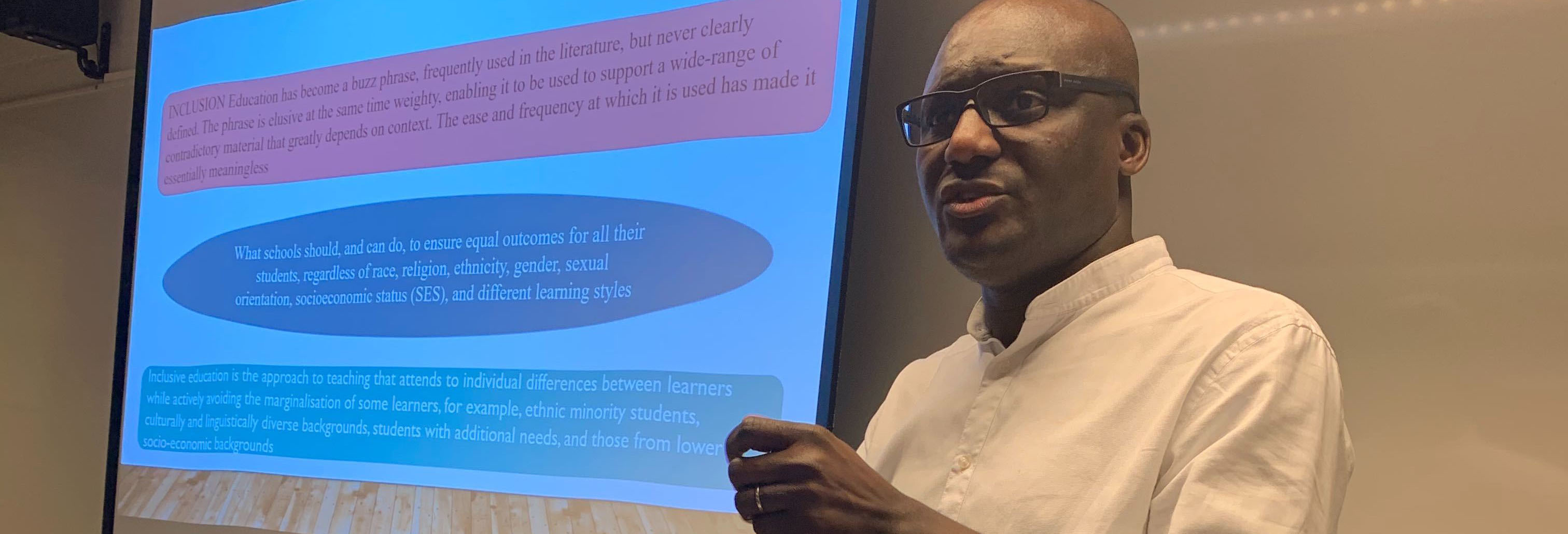
1ST TRANSNATIONAL MEETING
24-25 October 2019
Institute de Formació Contínua- IL3. Barcelona. Spain
| THURSDAY 24th OCTOBER 2019 | |
| 09.30 | Registration |
| 09.45 | Welcome opening words Maria Carol. Institut de Formació Continua -IL3 |
| 10.00 | Presentation of the Project Marsia Ellina. Institut de Formació Continua -IL3 |
| 10.15 | Brief presentation of each partner Elisabet Maseras. Departament d’Educació Dr. Melpo Iacovidou. University of Nicosia Dr. Emmanuel Acquah. Abbo Academy Dr. Ignasi Puigdellivol. University of Barcelona Maria Carol. Institut de Formació Continua -IL3 |
| 11.00 | Coffee break |
| 11.30 | Administrative Issues (GA, financial, CA) Marsia Ellina. Institut de Formació Continua -IL3 |
| 13.00 | Lunch Break |
| 14.30 | Presentations of WP leaders
WP1: Abbo Academy. Annette Bengs WP2: University of Nicosia. Dr. Andri Vrioni WP3: Departament’Educació. Eva Revilla WP4: University of Barcelona. Dr. Ignasi Puigdellivol WP5: Institut de Formació Continua -IL3. Marsia Ellina |
| 16.30 | End of first day |
| FRIDAY 25th OCTOBER 2019 | |
| 09.00 | Internal communication and dissemination of the projects Marsia Ellina. Institut de Formació Continua -IL3 |
| 09.30 | Different legal and methodological contexts Cyprus, Finland, Spain. Dr. Andri Vrioni. . University of Nicosia Dr. Emmanuel Acquah. Abbo Academy Elisabet Maseras. Dept. d´Educació Eva Revilla. University of Barcelona |
| 11.00 | Coffee break |
| 11.30 | Where do we take it from here? Next steps. Discussion. Dr. Emmanuel Acquah |
| 13.30 | Lunch Break |
| 15.00 | End of meeting |
KA2: Cooperation for Innovation and Exchange of good practices.
KA201: Strategic Partnerships for School Education
Project no.: 2019-1-ES01-KA201-064444
Project Duration: 36 months
Project tittle: Schools Harnessing Inclusive Facilitator Technology
Project Acronym: SHIFT
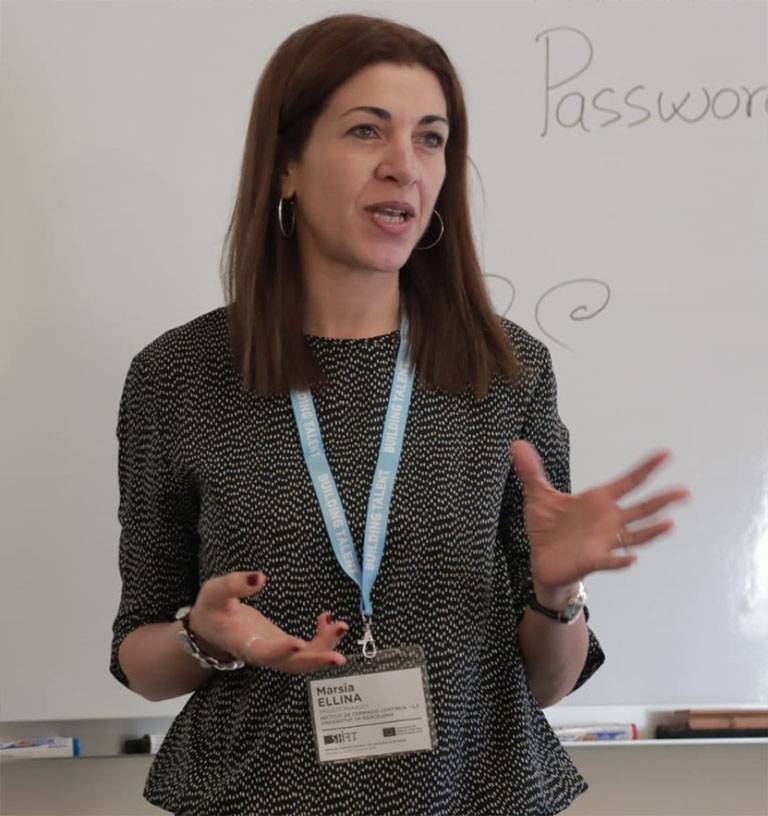
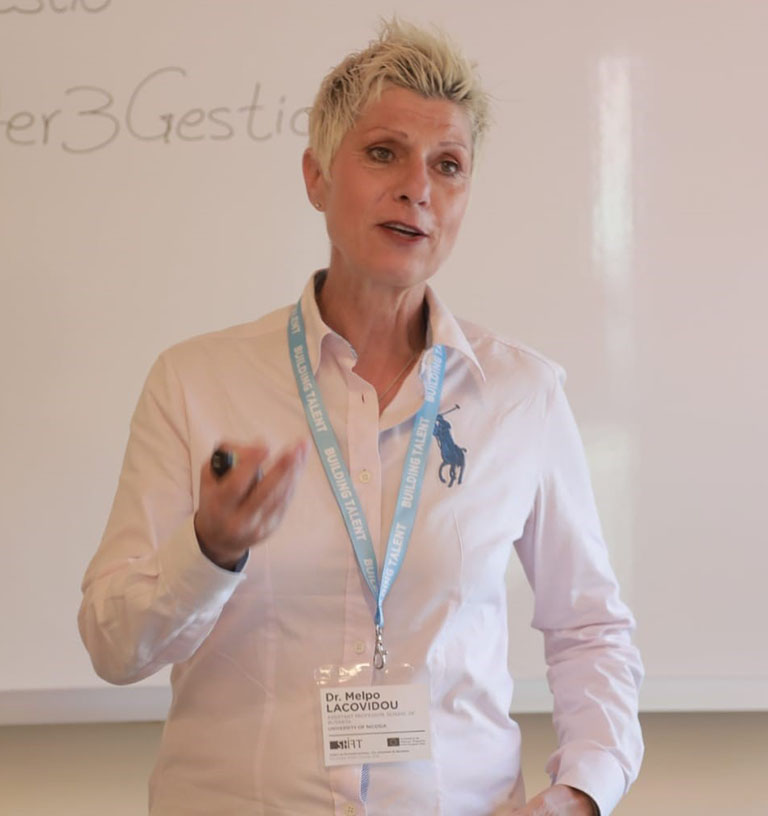
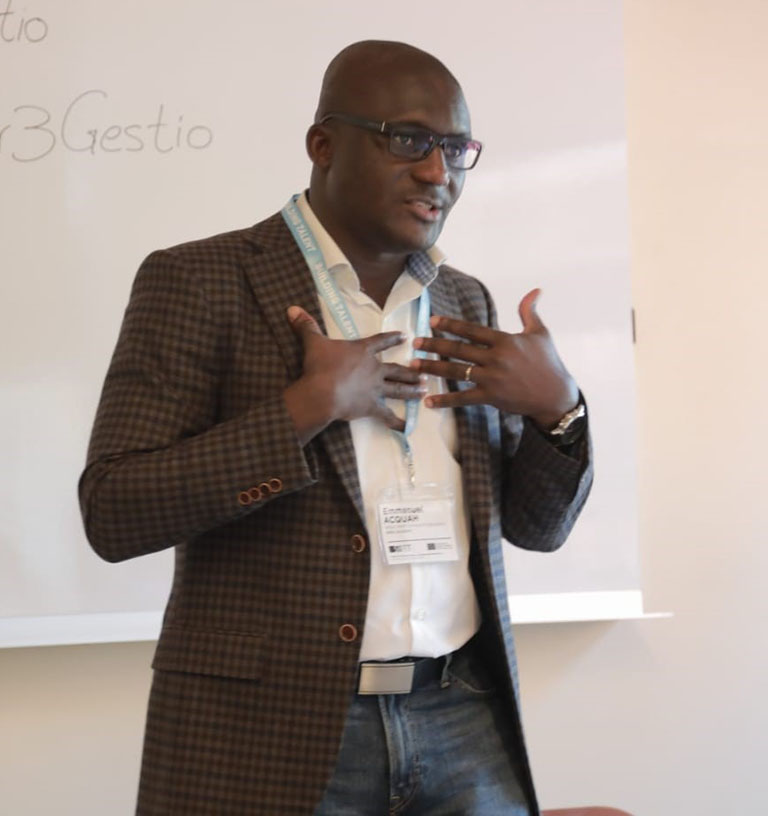
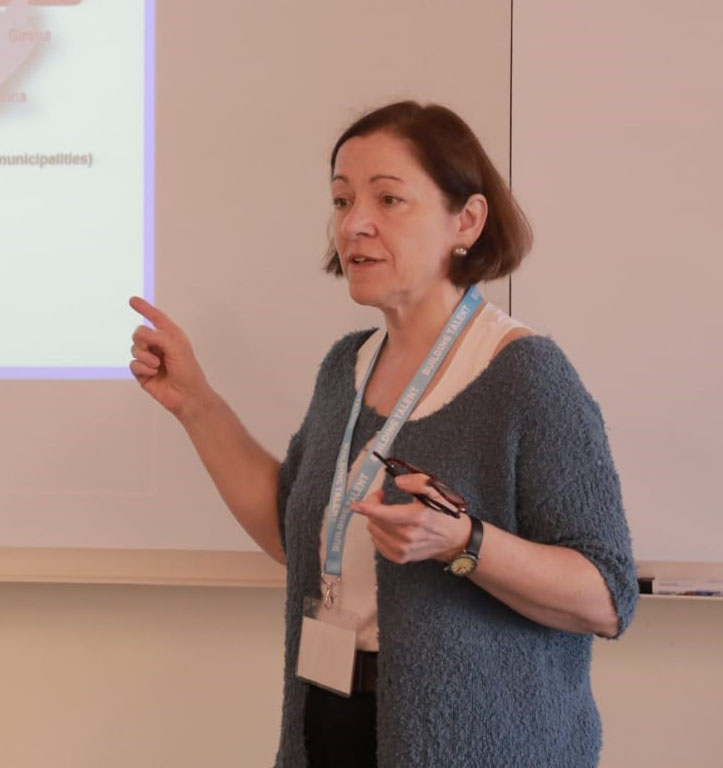
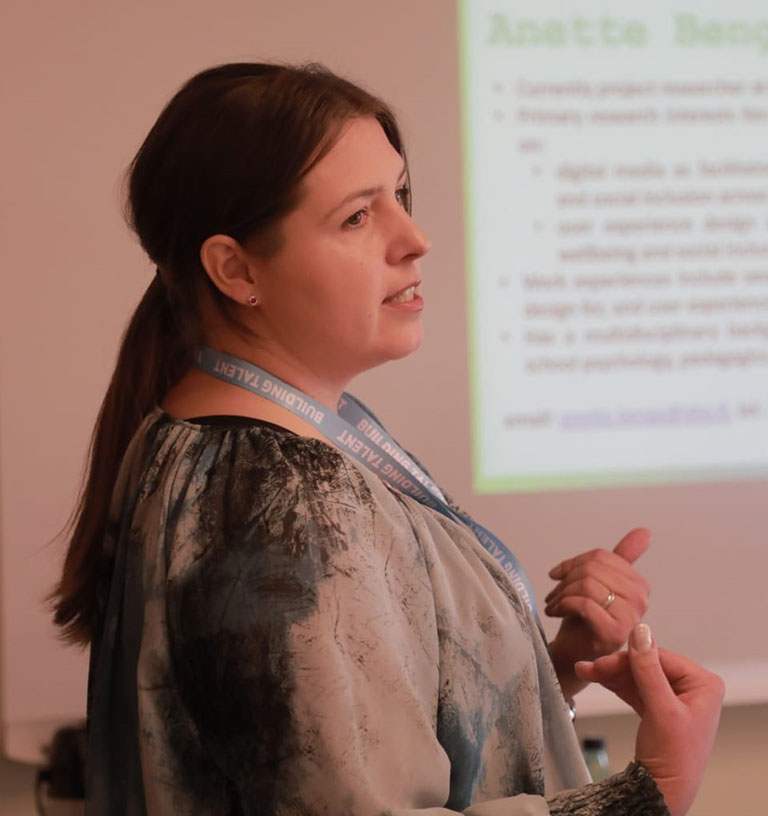
Publications
ARTICLE
14th of October of 2021

The SHIFT project promotes inclusion and the fight against school dropout
The SHIFT project, funded by ERAMUS+ and coordinated by IL3-UB, responds to the priorities of the new European agenda on digitization and inclusion.
The Department of Education of Catalonia participates as a partner in the project and wants to promote through the project policies for teacher training and evaluation of the transfer of digital skills in the inclusive classroom.
We interview Maica Gil González, Head of Professional Training Services. Department of Education of Catalonia (Generalitat de Catalunya) to tell us about the SHIFT project.
What are the objectives of the SHIFT project?
The project is based on three interrelated aspects: inclusive education to combat school dropout; digital skills –both from the point of view of the teaching staff and the students-; the evaluation of transfer of the training received related to the acquisition of digital skills in an inclusive classroom environment. In this sense, the project has three main objectives:
– Evaluate the transfer of the training received in digital skills related to the inclusion of students.
– Evaluate multidisciplinary skills, collaboration between teaching staff and support staff in the classroom.
– Create instruments that allow improving the design of training and transfer of digital skills related to inclusion of students in order to combat school failure and early school leaving and promote equity for all students.
What does the Shift Project mean for the Department of Education?
For the Department of Education, the Shift project poses a series of challenges:
– The implementation of an Erasmus KA2 project with European partners where different perspectives on education, inclusion and professional skills are shared.
– The possibility of creating a manual to offer directors of educational centers and other professionals involved in the design of activities, resources to evaluate, in a systematic and objective way, the transfer of the training received regarding the digital skills to promote the inclusion of all students.
– The possibility of carrying out the project from a multidisciplinary perspective in educational centers with the involvement of teaching professionals and educational support staff. In this sense, there are not many studies that have promoted collaborative work from these two areas.
How has belonging to a European consortium contributed to your institution? How do you see the synergies with the other partners?
Belonging to a consortium with countries as different as Finland and Cyprus, beyond detecting educational and population differences, has brought us closer to collaborative work on the reflection of teaching practice and educational support and the analysis of the competences that must be acquire to promote the educational inclusion of all students. In this particular aspect, the differences have been shortened as we share a common goal.
What added value do the two Intellectual Outputs of the project have for the Department of Education and for other Education departments in Spain and in Europe?
SHIFT will produce two Intellectual Outputs: the “Inclusive Classroom Evaluation Manual” and the “Learning Paths for Inclusion”.
The first, an innovative manual, will assist the assessment of transfer in the inclusive classroom by providing validated tools for an objective assessment. The second, will help to define training policies for educational professionals, taking into account the digital competencies they must have in order to promote inclusion.
What is the objective of the pilot in schools? Why do you think it is an important part of the project?
An important part of the project was to be able to observe and measure, in a real context, some of the aspects that would help us to create the two intellectual outputs of the project. In addition, it was essential to us to involve the true protagonists of the project: educational professionals. Thus, we set the following objectives:
– Obtain data from the participants on how they «access» the social phenomenon of teaching in the classroom.
– Obtain data on the teaching practices carried out in the classroom, through the implementation of technologies with the aim of including all the students (reality of the classrooms).
– Obtain data on the training received in the use of technologies in the classroom.
What are the expected results from the pilot in schools?
The results that we hope to obtain from the schools that have participated in the pilot go in two directions:
– On the one hand, measure the objectives that we have proposed in the pilot (previously mentioned).
– On the other hand, obtain the perceptions and opinions of the educational professionals who have participated on the use of the instruments used in the pilot: rubrics and in-depth interviews.
How do you see the relevance of the SHIFT project in the post-Covid era?
The score received by SEPIE (EU National Agency) for the financing of the project was among the first 18 that were presented in 2019. From the point of view of relevance, the quality of the implementation, the quality of the partners and the expected impact and dissemination got very good results. This means that at the time of presentation it was already relevant. During the lockdown, digital skills- of teachers, educational support staff and students- once again played a very important role, especially as regards to inclusion of those students with fewer opportunities to follow the learning process. For this reason, in the post-Covid era, we must continue to inquire about what type of training is the most efficient in order to transfer it to the classroom and be able to work to fight against premature educational dropout.
What impact can SHIFT have at a local, national or international level?
The results of the project, obtained from the pilot implementation and reflected in the Intellectual Outputs, must have an impact in the framework of educational centers; management must be actively involved to ensure the best training in digital skills for all educational professionals with instruments that measure transfer in classrooms, in the educational Administration which designs educational and training strategies) and internationally; to achieve synergies and strategies that help the different member states to fight against early school dropout and the inclusion of all students based on educational innovation and technology to support learning strategies.
How does the Department of Education plan to work for the sustainability of the project?
The Department of Education of Catalonia will use the Intellectual Outputs produced within the project to promote the training of educational professionals from the perspective of digital skills in an inclusive environment and, above all, from the perspective of multidisciplinary training, where different professional profiles cooperate to place students in the center of the educational system and help them achieve the expected educational results.
The project SHIFT is co-financed by the Erasmus+ program of the European Union. The content of this press release is exclusively the responsibility of the author and neither the European Commission, nor the Spanish Service for the Internationalization of Education (SEPIE) are responsible for the use that may be made of the information diffused herein.
For more information on SHIFT please contact: lgomez@il3.ub.edu
You can also visit the following link:
https://www.il3.ub.edu/blog/shift-project-promotes-inclusion-and-the-fight-against-school-dropout-il3-ub/

18/11/2019
Publication in IL3 blog

18/11/2019
Video publication in
Youtube by IL3

21/11/2019
Press release
(in Catalan)
UB website

21/11/2019
Publication in the website of inclusive education

22/11/2019
Publication in the website of Abo Academy

17/01/2020
Publication of the stakeholder meeting in Finland
(in Swedish)
The local newspaper

17/01/2020
Publication of the stakeholder meeting in Finland
(in Swedish)
Experience Lab’s facebook page
Outcomes & Results
At the completion of the project, two main results are expected:

Inclusive Classroom Evaluation Manual (English Version)
(1,5Mb)

Manual de Evaluación del Aula Inclusiva (Spanish Version)
(1,5Mb)

SHIFT Framework
2019-2022
(115Kb)

17/01/2019
SHIFT Presentation of results 19.6.2020
(2.1Mb)

17/01/2019
SHIFT WP1 results-Report
on Identification of needs 30.06.2020
(2.0Mb)
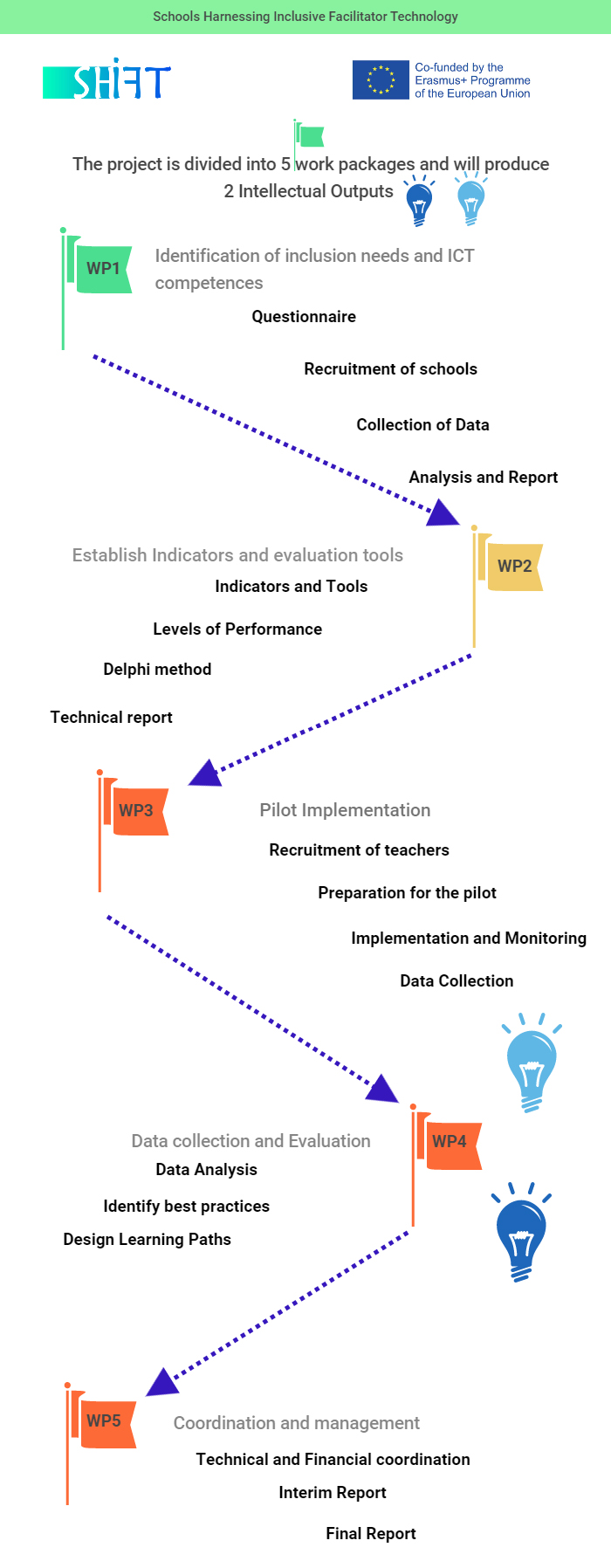
Contact us
Project Coordinator
FUNDACIO PRIVADA INSTITUT DE FORMACIO
CONTINUA DE LA UNIVERSITAT DE BARCELONA
Adress:
CARRER CIUTAT DE GRANADA 131
08018 BARCELONA , ES
Contact:
Darío Gómez. lgomez@il3.ub.edu
 https://www.linkedin.com/company/il3ub
https://www.linkedin.com/company/il3ub
 https://www.facebook.com/il3ub/
https://www.facebook.com/il3ub/
 https://www.instagram.com/il3_ub/
https://www.instagram.com/il3_ub/
 https://www.youtube.com/user/UBIL3
https://www.youtube.com/user/UBIL3
 @UB_IL3
@UB_IL3
 https://www.il3.ub.edu/blog/
https://www.il3.ub.edu/blog/
Åbo Academy University
 https://www.linkedin.com/school/abo-akademi-university/
https://www.linkedin.com/school/abo-akademi-university/
 https://www.facebook.com/aboakademi/
https://www.facebook.com/aboakademi/
 https://www.instagram.com/aboakademi/
https://www.instagram.com/aboakademi/
 https://twitter.com/aboakademi
https://twitter.com/aboakademi
The Department of Education. Generalitat de Catalunya
 https://www.instagram.com/educaciocat/
https://www.instagram.com/educaciocat/
 https://www.facebook.com/educaciocat/
https://www.facebook.com/educaciocat/
 https://twitter.com/educaciocat
https://twitter.com/educaciocat
University of Nicosia
 https://www.linkedin.com/school/university-of-nicosia/
https://www.linkedin.com/school/university-of-nicosia/
 https://www.facebook.com/UniversityofNicosia
https://www.facebook.com/UniversityofNicosia
 https://www.instagram.com/universityofnicosia/
https://www.instagram.com/universityofnicosia/
 https://twitter.com/UNIC_ENG
https://twitter.com/UNIC_ENG
University of Barcelona
 https://www.facebook.com/UniversitatdeBarcelona
https://www.facebook.com/UniversitatdeBarcelona
 https://www.instagram.com/UniBarcelona/
https://www.instagram.com/UniBarcelona/
SEPIE
 ErasmusPlusSEPIE
ErasmusPlusSEPIE @sepie_gob
@sepie_gob @sepiegob
@sepiegob
